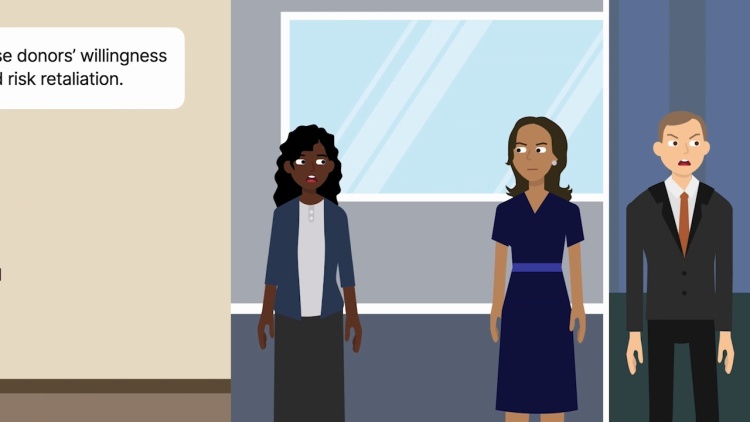Americans for Prosperity Foundation v. Bonta
United States Supreme Court
141 S. Ct. 2373, 210 L. Ed. 2D 716 (2021)
- Written by Tanya Munson, JD
Facts
The California Attorney General’s Office regulated and supervised charitable funding. Charities were generally required to register with the attorney general (defendant) and renew their registrations annually. The attorney general required charities renewing their registration to file copies of their Internal Revenue Service Form 990 and Schedule B to Form 990. Schedule B required organizations to disclose the names of donors who contributed more than $5,000 in a particular tax year. Americans for Prosperity Foundation and Thomas More Law Center (the charities) (plaintiffs) were charities that had renewed their registrations and filed copies of Form 990 each year since 2001. The charities did not file Schedule Bs with the state because they wanted to preserve their donors’ anonymity. For years, the charities had no problem with this practice because the attorney general was not strict about enforcing the Schedule B requirement. In 2010, California decided to increase enforcement of charities’ Schedule B obligations. By imposing the requirement, California sought to prevent fraud or wrongdoing by charitable organizations. However, Schedule Bs were not used to advance any of the attorney general’s investigative, regulatory, or enforcement efforts. By 2013, the charities had both received deficiency letters for not complying with the requirement. The charities refused to comply, and the attorney general threatened to suspend their registrations and fine their directors and officers. The charities filed suit in district court, alleging that the attorney general had violated their First Amendment rights and the rights of their donors. The charities alleged that disclosure of their Schedule Bs would make donors less likely to contribute and would subject them to the risk of reprisals. The district court found in favor of the charities and enjoined the state from collecting the Schedule Bs. The attorney general appealed, and the court of appeals reversed the judgment, finding that the district court incorrectly applied strict scrutiny as the standard.
Rule of Law
Issue
Holding and Reasoning (Roberts, C.J.)
Concurrence (Thomas, J.)
Concurrence (Alito, J.)
Dissent (Sotomayor, J.)
What to do next…
Here's why 904,000 law students have relied on our case briefs:
- Written by law professors and practitioners, not other law students. 47,100 briefs, keyed to 995 casebooks. Top-notch customer support.
- The right amount of information, includes the facts, issues, rule of law, holding and reasoning, and any concurrences and dissents.
- Access in your classes, works on your mobile and tablet. Massive library of related video lessons and high quality multiple-choice questions.
- Easy to use, uniform format for every case brief. Written in plain English, not in legalese. Our briefs summarize and simplify; they don’t just repeat the court’s language.





